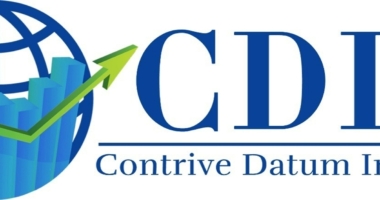Static site generators have gained popularity as a way to create faster, more secure, and scalable websites. They use pre-built pages that are served to the user, which improves speed and security, compared to dynamic sites like WordPress. WordPress uses a database to store and manage content, offering greater flexibility in adding, modifying, and removing content on the website. Static site generators do not use databases; instead, the content is stored in text files, simplifying the infrastructure and improving security. Although WordPress offers a large number of themes and plugins to customize the design and add functionality to the website, static site builders also allow for some degree of customization. However, they don’t offer the same number of options and extensions as a CMS like WordPress. Static site generators are also easier to maintain and require less frequent updates. When choosing between WordPress and static site generators, it depends on the specific needs of your project and your technical skills. Some popular static site generators include Jekyll, Eleventy, and Next.js.
Static Site Generators: Revolutionizing Web Development with Smart Technology
As the technology world continuously evolves, web developers seek faster, more secure, and scalable website building tools. One of the most popular options in recent years is the use of static site generators. But what exactly is a static site generator, and what are the benefits of using one? In this article, we will introduce you to the basics and advantages of using static site generators.
What is a Static Site Generator?
A Static Site Generator is a tool that creates static websites from text files and templates. Unlike dynamic websites that generate content in real-time, static websites are pre-built and served directly to the user’s browser. This results in greater speed, security, and scalability compared to traditional approaches.
Advantages of Using a Static Site Generator:
1. Speed
Static websites load faster than their dynamic counterparts because they serve pre-built content. Faster loading speed leads to a better user experience and better search engine performance, which benefits both users and website owners.
2. Security
Static websites eliminate many of the vulnerabilities associated with dynamic websites, such as SQL injection attacks or brute force attacks. Security risks are minimal as there are no databases or scripts on the server.
3. Scalability
Static websites are easily scalable, as they only require storage on a server and do not need to deal with the overhead of databases or real-time applications. They are ideal for projects that may experience sudden increases in traffic.
4. Cost Reduction
Static websites are often cheaper to host as they do not require a complex server infrastructure. The use of cloud storage services and content delivery networks (CDNs) can further reduce costs.
5. Version Control and Simplified Workflow
Static site generators can easily integrate with version control systems like Git. This allows developers to keep track of all changes made to code and collaborate more efficiently.
Differences with CMS like WordPress
Content Management Systems (CMS) like WordPress and Static Site Builders, while both are website building tools, have key differences in their approach, architecture, and functionality. Here are some main differences between a CMS like WordPress and a static site builder:
-
CMS platforms dynamically generate content on the server and require databases and scripts, while static site builders create pre-built content that can be hosted anywhere.
-
CMS platforms are easier to use for non-developers, while static site generators require coding skills.
-
Static site generators have a simpler architecture than CMS platforms and are less prone to security risks.
-
Static site generators do not require frequent updates and maintenance, which is often necessary for CMS platforms.
In conclusion, static site generators are an excellent option for building fast, secure, and scalable websites. They offer several advantages over traditional approaches and have a simpler architecture, making them less prone to security risks. Although they require coding skills, static site generators are highly effective and can be integrated easily with version control systems. If you want to create a website that is fast, secure, and easily scalable, then static site generators are the way to go.
Dynamic vs. Static: Choosing Between WordPress and Static Site Generators
When it comes to website building, the choice between a dynamic CMS like WordPress and a static site generator depends on the specific needs of the project. Each approach has its strengths and limitations, and understanding them is essential for making an informed decision.
Dynamic vs. Static
WordPress is a dynamic CMS that generates content in real-time when a user visits a page. In contrast, static site generators create pre-built pages that are served directly to the user. This makes static sites generally faster but limits their ability to deliver dynamic functionality in real-time.
Database
WordPress uses a database to store and manage content, allowing for greater flexibility in adding, modifying, and removing content on the website. Static site generators, on the other hand, do not use databases; instead, the content is stored in text files, which simplifies the infrastructure and improves security.
Customization and Extensions
WordPress offers a vast library of themes and plugins to customize the design and add functionality to the websites. Although static site builders also allow for some degree of customization, they don’t offer the same number of options and extensions as a CMS like WordPress.
Ease of Use
WordPress is known for its ease of use and user-friendly admin interface. Static site generators, on the other hand, may require more technical knowledge and coding skills to set up and manage.
Maintenance and Updates
WordPress websites require regular maintenance and updates to ensure their security and performance. On the other hand, static websites are less prone to security issues and do not require frequent updates, making them easy to maintain.
In short, WordPress and static site generators have different use cases. WordPress is ideal for websites that require dynamic functionality, extensive customization, and an easy-to-use interface for content management. On the other hand, static site generators are more suitable for projects looking for simplicity, security, and speed.
5 Static Site Generator Examples
If you’re considering a static site generator for your next project, here are five popular examples to choose from:
-
Jekyll: A very popular static site generator written in Ruby. Jekyll is easy to use and has a large community of users and developers. It integrates seamlessly with GitHub Pages, making it easy to deploy and manage websites. https://jekyllrb.com/
-
Hugo: Hugo is a static site generator written in Go that stands out for its speed and ease of use. Its extensive theme library and ability to handle a large amount of content make it an attractive choice for projects of any size. https://gohugo.io/
-
Gatsby: Gatsby is a React-based static site generator that uses GraphQL to manage data. It is ideal for projects that require deeper integration with other tools and services, as well as for those looking to take advantage of modern web development technologies. https://www.gatsbyjs.com/
-
Next.js: Next.js is a static site generator built on top of React. It offers server-side rendering, automatic code splitting, and hot module replacement, making it an excellent choice for projects that require performance and scalability. https://nextjs.org/
-
Gridsome: Gridsome is a Vue.js-based static site generator that offers a modern development experience and easy integration with various data sources, including headless CMSs and APIs. https://gridsome.org/
In conclusion, the choice between a dynamic CMS like WordPress and a static site generator depends on the specific needs of the project. While WordPress offers extensive customization and an easy-to-use interface, static site generators provide simplicity, security, and speed. With these factors in mind, it’s essential to choose a static site generator that fits the specific needs of the project, such as the examples listed above.
Choosing the Right Static Site Generator for Your Needs
Static site generators offer a great solution for building fast, secure, and scalable websites. There are many options available, each with its own set of advantages and characteristics. In this article, we will look at two popular static site generators: Eleventy and Next.js.
Eleventy (11ty)
Eleventy is a simpler and more flexible static site generator, written in JavaScript. It does not have a mandatory file and directory structure and supports a wide variety of template formats. This makes it especially suitable for custom projects and those looking for a lighter solution.
Next.js
Although primarily a development framework for React-based web applications, Next.js can also be used as a static site builder. It offers a lot of advanced functionality, such as server-side rendering and incremental generation of static pages, making it a powerful and flexible option for more complex projects.
These are just a few examples of static site generators available on the market. Each one has its own characteristics and advantages, so it is important to do your research and choose the one that best suits your needs and preferences.
In conclusion, if you’re looking for a way to improve the speed, security, and scalability of your website, consider using a static site generator in your next project. With the many options available, including Eleventy and Next.js, you’re sure to find the one that fits your needs.
Don’t miss interesting posts on Famousbio









